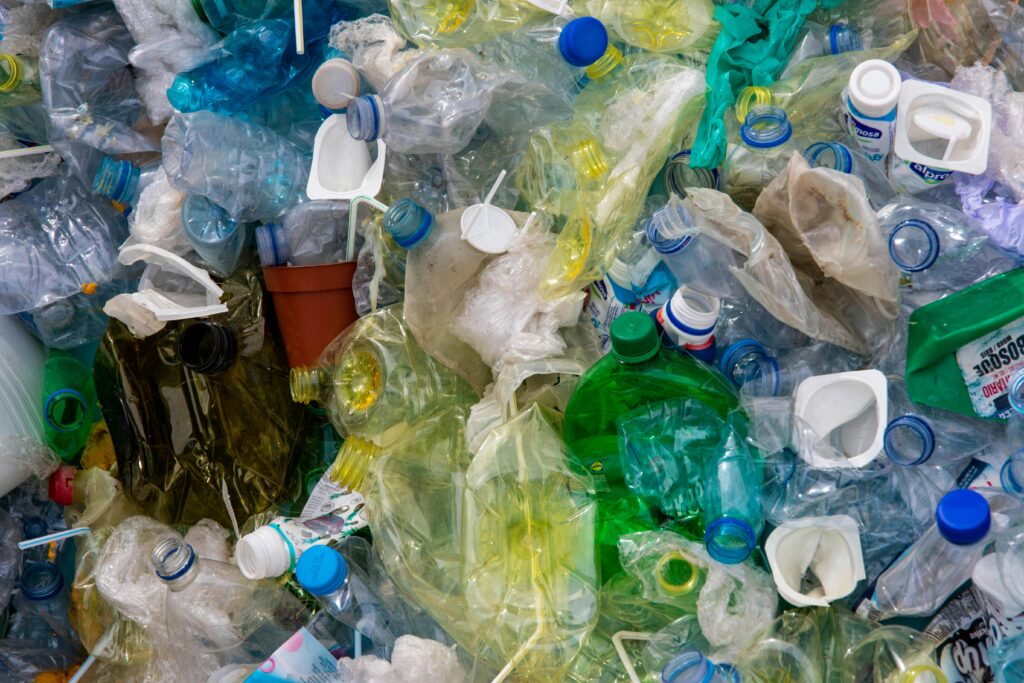AEPW’s Efforts Fall Short
A Greenpeace analysis has revealed that five major oil and chemical companies—ExxonMobil, Dow, Shell, TotalEnergies, and ChevronPhillips—have produced over 1,000 times more plastic than the waste they’ve removed through their Alliance to End Plastic Waste (AEPW). These companies, among the world’s largest plastic producers, pledged to combat plastic pollution when forming the alliance in 2019.
The AEPW initially aimed to divert 15 million tonnes of plastic waste from the environment by 2023. However, data obtained by Greenpeace shows that these companies produced 132 million tonnes of plastic in five years, while only managing to remove 118,500 tonnes of waste.
The Scale of the Discrepancy
The analysis, conducted with data from consulting firm Wood Mackenzie, focused on two key types of plastic—polyethylene (PE) and polypropylene (PP). These polymers are commonly used in plastic bottles, bags, and packaging. Notably, the figures exclude other widely produced plastics like polystyrene, meaning the total production volume is likely even higher.
Despite its ambitious goals, the AEPW quietly abandoned its target of removing 15 million tonnes of waste, calling it “too ambitious.” Critics argue this decision underscores a significant disconnect between the alliance’s stated mission and its actual impact.
Greenwashing Accusations
Greenpeace UK’s Will McCallum has accused the AEPW of greenwashing, likening its efforts to “scooping water with a teaspoon while letting the tap run.” He emphasized that reducing plastic production is the only viable solution to the growing crisis.
Environmentalist Bill McKibben echoed these concerns, stating that the oil and gas industry—closely tied to plastic production—has long misled the public about the viability of plastic recycling.
AEPW’s Defense and Lobbying Controversy
In response to the criticism, an AEPW spokesperson defended the alliance, stating it aims to accelerate innovative solutions for reducing plastic waste. However, the group has come under fire for lobbying against global caps on plastic production during the UN’s negotiations for a treaty to address plastic pollution.
Environmental advocates argue that production caps are essential to controlling the crisis. Governments like the UK and the U.S. have recently called for including such caps in the treaty, which is expected to address the entire lifecycle of plastics.
Tackling the Root Cause
Experts, including Professor Steve Fletcher of the University of Portsmouth, have stressed the need to reduce “virgin plastic” production. Without curbing the creation of new plastic, efforts to manage waste and promote recycling will fail to address the core problem.
The AEPW’s origins highlight its ties to the American Chemistry Council, a trade group representing chemical manufacturers. Critics suggest the alliance was formed as a PR strategy to shift focus from plastic bans to recycling, while simultaneously maintaining high production levels.
Rising Global Plastic Pollution
Global plastic production has soared, doubling from 2000 to 2019. In 2019 alone, the world produced 460 million tonnes of plastic, with only 9% ultimately recycled, according to the OECD. Despite initiatives like the AEPW, the scale of plastic pollution continues to grow, raising doubts about the effectiveness of current strategies.
A Pivotal Moment
As the UN nears the finalization of its global treaty on plastic pollution, the debate over production caps remains heated. While the AEPW and industry allies argue against reducing production, environmental advocates maintain that cutting production is the only way to make meaningful progress.
The coming months will determine whether major corporations shift their strategies toward genuine solutions or continue focusing on limited recycling efforts while flooding markets with new plastic.
What do you think is the best way to tackle the plastic pollution crisis? Should corporations focus on reducing production or improving recycling systems? Join the conversation below.


